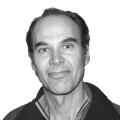News & Articles
Browse all content by date.
Everybody takes things too seriously.
I fall into that trap but I do have a remedy.
I look up at the night sky and my earthly concerns, no matter that Trump and his minions are romping about, drift off for the moment toward some distant gassy nebulae, disappear beyond the horizon of the nearest galaxy visible to the naked eye.
I’ve explained plenty of times that we’ve allowed our world to accelerate beyond our means. We rush to the fishing hole so we can get to relaxing sooner, we speed to the shack to get away from the grasp of civilization as quick as we can.
The whole purpose of enjoying the outdoors is to slow down not speed up, to look closely, investigate and ponder, to throw the shackles of our working lives aside. To sense the outdoors is to feel we’re a part of the larger natural world, that no matter our efforts to live in boxes, drive boxes, eat food out of boxes, talk into boxes, relate to the world by watching a box and thinking that the world is just a big round box, we are hopelessly creatures of this planet and its timeless ways. The planet made us, it is us.
Alas, we continue to live our lives fairly separated from the workings of the planet. We are likely centuries past the symbiotic relationship we shared for so long, have mistakenly drifted away from it to our and the planet’s detriment.
The stars and planets and the fuzzy hint of the Andromeda galaxy hanging in space just below the constellation Cassiopeia bring my self-centered, human-centered view into a clearer perspective. We are but a small corner of the universe, likely not the only corner where life may exist. I’m not one to believe in aliens or other galactic voodoo but seeing those thousands of stars makes me let go of the perspective that it’s all been created for me and my kind, that we’re at the top of the food chain for some divine purpose.
If that were the case, however, I would tell my evangelical brothers and sisters that we’re falling behind on our mortgage a little, that we’re letting the House that God built us fray at the edges, that we’re not getting the point about taking care of our home, our only home.
As a pagan Lutheran, one who seems to find himself in church for weddings and funerals, I’m not one to get too holy about the whole thing. We owe it to the planet to be better caretakers.
And I personally don’t care what some other life form might be thinking out there in the vast universe. From Cygnus the Swan in the winter sky to Orion to the North Star at the end of the Little Dipper I just believe I’m a little piece of all those things, that I won’t be separated out.
We’re all a little bit stardust, the result of big bangs and supernovae.
Scientists discovered long ago that our human chemical and molecular constitution is the same as found in all manner of matter flying about the universe. We’re carbon-based like a meteor or the moon, with much of our total mass being made up of water but we’re not inert gases or plain old rocks. Somehow the spark of life has ignited and we move about the planet with free will and an appetite for fattening snacks.
From Anne Marie Helmenstine, Ph.D. and chemist:
“Most of the human body is made up of water, H2O, with cells consisting of 65-90 percent water by weight. Therefore, it isn’t surprising that most of the human body’s mass is oxygen. Carbon, the basic unit for organic molecules, comes in second. Ninety-nine percent of the human body is made up of just six elements: oxygen, carbon, hydrogen, nitrogen, calcium and phosphorous.”
Helmenstine provided the following list of what we are in terms of the elements, things found throughout the universe.
1. Oxygen (65 percent)
2. Carbon (18 percent)
3. Hydrogen (10 precent)
4. Nitrogen (3 percent)
5. Calcium (1.5 percent)
6. Phosphorous (1 percent)
7. Potassium (0.35 percent)
8. Sulfur (0.25 percent)
9. Sodium 90.15 percent)
10. Magnesium (0.05 percent)
11. Copper, Zinc, Selenium, Molybdenum, Flourine, Chlorine, Iodine, Manganese, Cobalt, Iron (0.70 percent)
12. Lithium Strontium, Aluminum, Silicon, Lead, Vanadium, Arsenic, Bromine (trace amounts)
This little corner of the universe is where we live. The night skies we see above are unique to our perspective as we orbit the sun, as the solar system orbits the Milky Way galaxy, as the galaxy is moving outward from the absolute center of the infinite universe.
We seem to share this elemental foundation with just about everything we can find on this planet and the other bodies that exist in the universe.
To that end, we don’t live in a separate box on this planet or anywhere else. We aren’t separate from our environments no matter our best efforts to see the world as if we are.
| Tweet |


